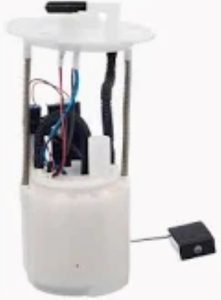Calibrating the fuel pump is important for accurate fuel delivery to the engine, fuel efficiency, and avoiding damage to the engine. Calibrated- The fuel pumps are designed to deliver fuel at a given pressur and flow rate; that range is typically 40–60 PSI for a mainstream vehicle and can creep upwards of 100 PSI for a high-output engine. An improper calibration can see fuel pressure reduced or spiked, both of which lead to unstable air-fuel ratios that could induce knock or misfires. Research shows that a 10% variation in fuel pressure can actually lead to 15% loss of fuel efficiency, seriously affecting engine performance.
As a result, high-performance vehicles require more stringent calibration, which makes sense given that the amount of fuel flowing into the engine is significantly higher when under load. These engines pumps typically run at flow rates above 300 liters per hour. With proper calibration, the pump can maintain these rates without oscillations, avoiding lean fuel scenarios that could be harmful to high-powered engines. With a forced induction system, precision is key for fuel delivery because a lean spike can lead to detonation and a hefty repair bill only takes one mistake for your car to be sinkgear.

Voltage stability is also one of the elements used in the calibration. Fuel pumps are expected to receive a constant 12 Volt power supply and the certification tests include voltage tolerance to avoid performance being compromised. Even a small voltage drop of 5% leads to a loss of fuel pump efficiency: pressure drop → uncontrolled fuel flow. Bosch and Walbro, among the other notable brands do extensive calibration to keep pumps within tight tolerances to ensure that there is a consistent and predictable pump performance under a variety of voltage conditions.
By reducing wear on components for better longevity, it pays to calibrate the fuel pump too. Pumps that have a bad calibration and are not used on its optimal ranges wear 20-30% faster and increase maintenance costs. Regular calibration safeguards components such as the impeller and seals, helping the pump reach the end of its designed operating life and minimizing costly service demands.
Proper Fuel Pump calibration matches the fuel delivery to what the vehicle needs, maximizing performance, maximizing fuel economy, and protecting the engine. The pump remains within safe parameters, both for the reliability of the vehicle and for the maintenance budget, through regular calibration checks, therefore delivering massive benefits.